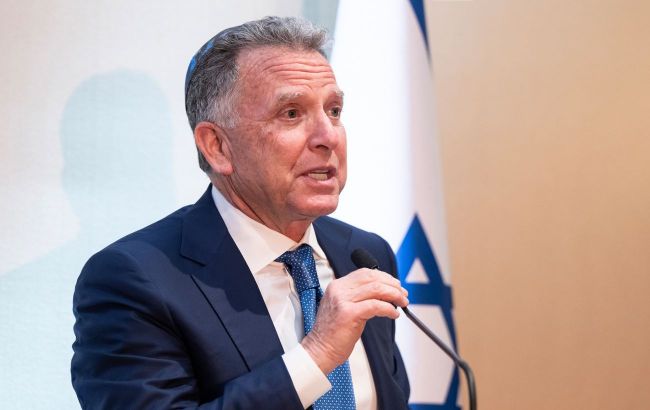Trump issues ultimatum to Russia and Ukraine on negotiations, says Witkoff
 Photo: Steve Witkoff (Getty Images)
Photo: Steve Witkoff (Getty Images)
US President Donald Trump has issued an ultimatum to Ukraine and Russia to hold direct peace talks. Otherwise, the United States may withdraw from the negotiation process, according to Trump's special envoy Steve Witkoff.
"The president has issued an ultimatum to both sides that without those direct talks and if they don’t occur quickly, then he believes the United States ought to step back from this conflict whatever that means and just not be involved," said Witkoff.
According to him, this is because the United States did not start the war, and as a mediator, the United States wants to end it.
"The way that that happens is a ceasefire — everybody stops the violence, and we spend a bit of time together making sure we can deal with the major issues here and I think that we can," said Witkoff.
Trump's representative believes that the main issues that still need to be resolved include Ukraine's territory, a key nuclear power plant that is currently offline, and Ukraine's access to important waterways.
"I think the major issues here are the regions, the nuclear plant, it’s how the Ukrainians are able to use the Dnieper River and get out to the ocean. There are things here that I don’t think are going to be difficult to solve if we get the parties to the table, they’re talking to each other, we’re narrowing issues between them, and then we’re coming up with compromises and creative solutions to address each of their concerns," said Witkoff.
When asked about the remaining problems, Witkoff explained that there are currently about five regions in Ukraine that are contested by the two sides: two are under strong Russian control, and three are under mixed Ukrainian control. He also said that the Zaporizhzhia nuclear power plant is a "little bit of a crown jewel" because of how much electricity it can produce and is currently “a big part of this discussion.”
According to him, the United States is having informal conversations with both Ukraine and Russia.
"So we’re in a conversation with both sides informally. We want to be direct and at the bargaining table directly, but we’re in a conversation about what you would accept, Russia, in some of these areas. Would you retreat back behind certain administrative lines? The same thing with the Ukrainians," Trump's special representative said.
Possible negotiations
On the night of May 11, Russian dictator Vladimir Putin refused to support the proposal of Ukraine, the United States, and the countries of the Coalition of the Willing to cease fire scheduled for May 12 during a press conference. Instead, he called for the resumption of peace talks in Istanbul from the point where they were interrupted in 2022.
The international community's reaction to this initiative was mostly negative. French President Emmanuel Macron said that Putin was only trying to buy time, while Czech Foreign Minister Jan Lipavsky said that the Russian leader simply wants to keep shooting. Volodymyr Zelenskyy reiterated Ukraine's readiness for dialogue, but stressed that negotiations are possible only if Russia agrees to a ceasefire starting May 12.
Zelenskyy then said that he wanted direct talks with Vladimir Putin right away. At the same time, Trump also admitted that he could participate in a dialogue between the two leaders.
At the same time, The Guardian writes that Zelenskyy was forced to agree to talks with Vladimir Putin in Istanbul on May 15. He did so in order not to offend US President Donald Trump.

